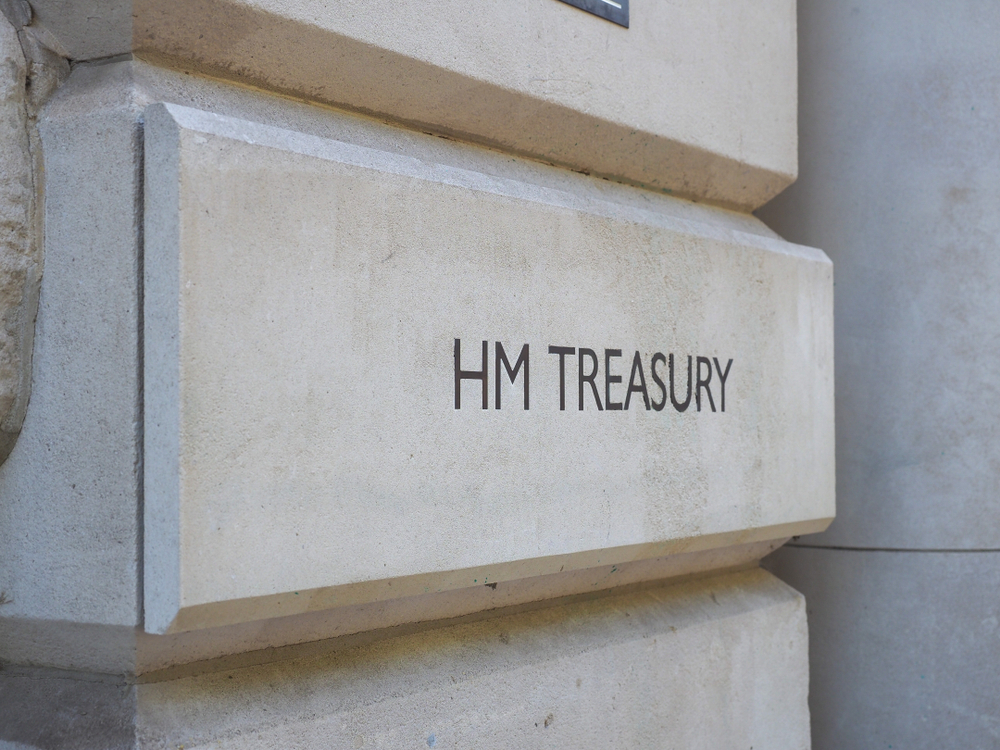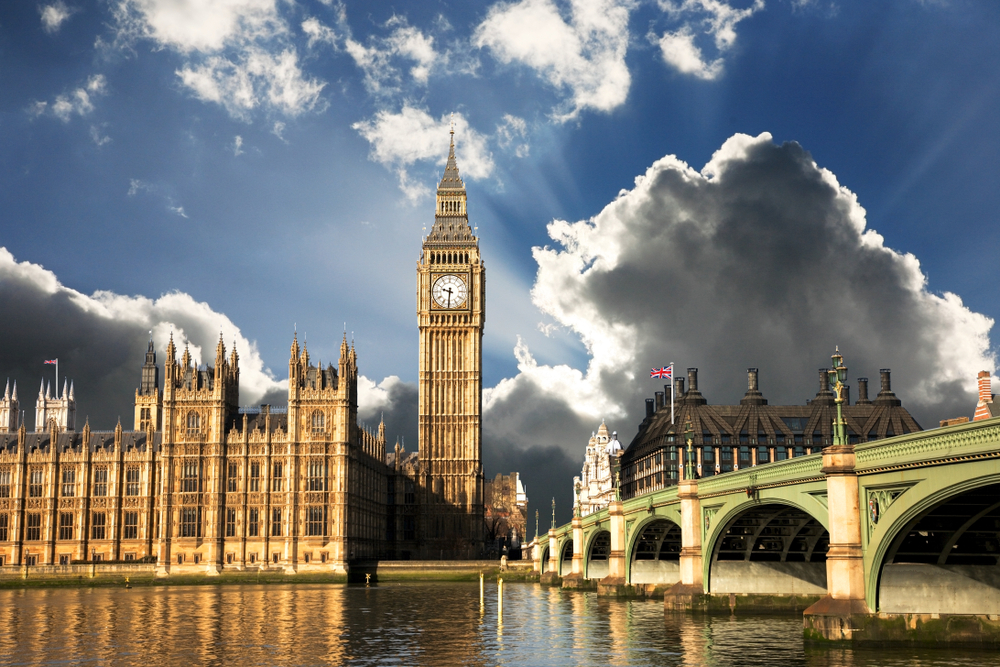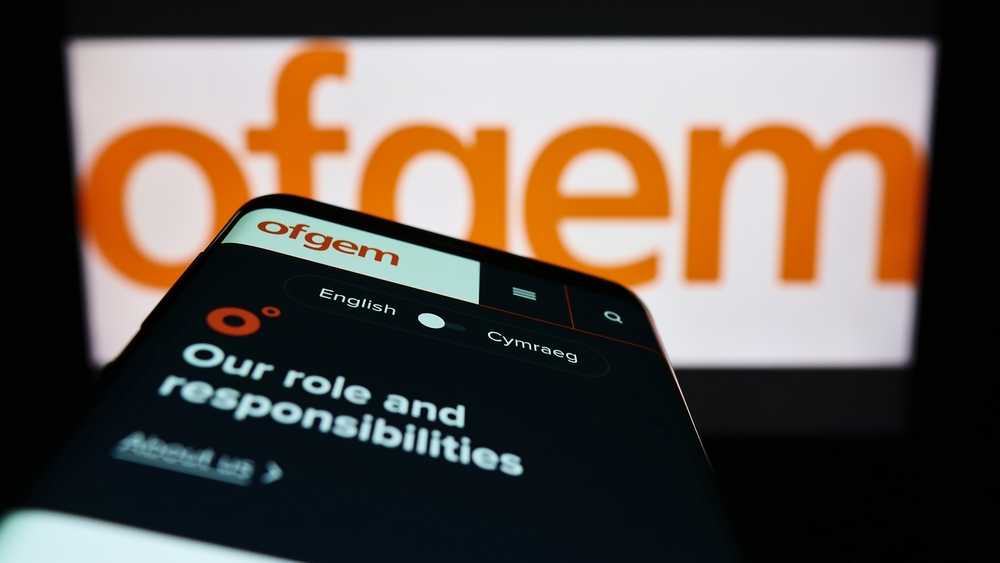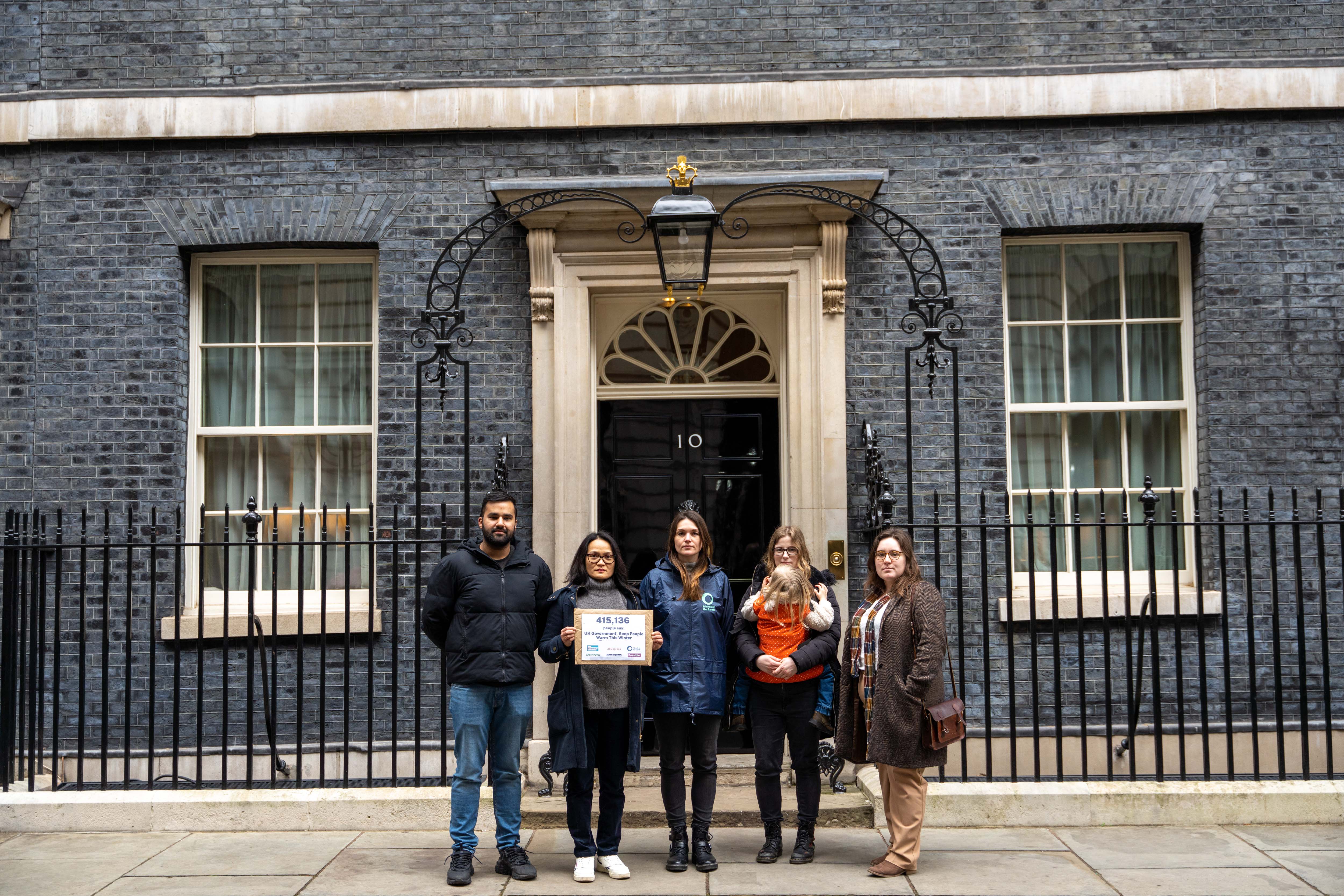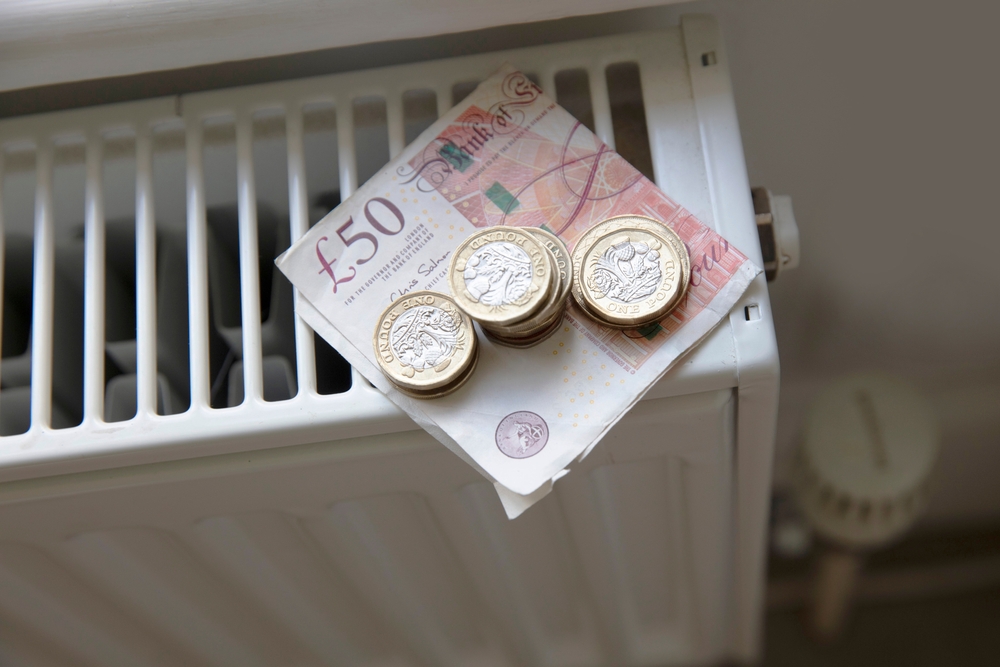The British public is decisively in favour of a swift transition away from fossil fuels in order to ensure a reliable and affordable supply of energy, according to new research released today.
Over half of adults in Great Britain (54%) believe the country should aim to get off oil and gas as quickly as possible by ramping up efforts to improve energy efficiency and developing significantly more renewable energy. Less than a third (29%) support a more gradual transition away from oil and gas.
Just one in ten respondents to the poll conducted on behalf of the Warm This Winter campaign felt that the UK should aim to continue to meet its energy demand primarily with oil and gas for as long as is necessary. [1]
The news came as the campaign group, which includes over 40 of the UK’s leading charities, delivered a 400,000-strong petition to Number 10 Downing Street. The petition calls on the government to take decisive action now to solve the energy price crisis, which has left seven million UK households in fuel poverty this winter.
The petition, which has attracted celebrity backers including business woman Deborah Meaden, anatomist Professor Alice Roberts and writer Emma Kennedy, has four key demands of the government:
- Emergency support now: Providing additional financial support to people who without urgent action will be on the front-line of poverty every winter.
- Help to upgrade homes: Launching a new, properly-funded programme of home upgrades and insulation across the UK to bring down bills and prevent energy waste.
- Cheap energy: More than triple the amount of renewable energy in the UK by 2030, including wind and solar generated in harmony with nature, in order to permanently lower bills.
- Free the UK from oil and gas: Stop approving new oil and gas fields so that the UK can escape its dependence on volatile fossil fuels.
Dragons’ Den star and environmental campaigner, Deborah Meaden, is keen to see a restructuring of the UK energy market to allow the country to take advantage of the lower cost of renewable energy. Deborah said:
There is simply no excuse in one of the richest countries in the world for people to be having to make the choice between heating and eating or being forced into public spaces simply to keep warm.
The UK’s reliance on costly fossil fuels has left this country vulnerable to oil and gas price fluctuations – an absolute catastrophe for energy bills in the wake of Russia’s invasion of Ukraine. It’s time we overhauled the current energy system, decoupled renewable prices from the global gas market and prioritised harnessing our abundant natural resources, including wind, wave and solar power in order to secure energy supply and bring prices down in the long-term.
Jess Stone, 27, from Essex, handed in the petition on behalf of the 400,000 members of the public who signed it. She said:
You try so hard to make everything stretch, but there’s only so much stretching you can do, and once you’ve cut out every single thing that isn’t essential, you’re still left having to cut out essentials.
It’s not just the physical toll, it’s not just the financial toll, it’s the mental toll that is getting harder and harder. Every single day I’m having to decide ‘what will we go without today?’.
I’m having to put my four-year-old to bed every night in a home that is too cold. He has asthma and the cold is bad for his lungs, but I just can’t afford to put the heating on, so we’ll go to sleep in the same bed for warmth, under two duvets, with him sleeping in his dressing gown.
I turn to places like food banks and baby banks for help. I’m grateful for these places, but they shouldn’t have to exist. Today I went to a baby bank to pick up a jumper for my son – he grows so quickly and I can’t afford to keep up, and he needs warm clothes when we can’t afford to heat the house.
I’ve donated his old clothes for other parents, we’re all helping each other out, but you think to yourself, why isn’t the Government doing something to actually solve this?
A spokesperson for the End Fuel Poverty Coalition which backed the petition commented:
Across the UK, the message to decision makers is clear: we need reform to our broken energy system and no return to the dirty fossil fuels of the past.
An end to fuel poverty which also meets net zero targets is possible, it just needs the political will to make it happen.
Every so often the Government wakes up to the reality of life in energy crisis Britain and takes action. The latest u-turn is that it now looks set to keep the average energy bill capped at current levels for another three months. But in reality, this will still feel like a 19% increase in bills for people from 1 April as the Energy Bill Support Scheme is coming to an end and new support for vulnerable households is insufficient.
Tessa Khan, executive director of Uplift added:
This shows the public is way ahead of the government on how to solve the UK’s energy crisis and lower energy bills permanently. Fix the leaks in our buildings to keep the heat in, crack on with developing cheap renewable energy, and move the UK off unaffordable fossil fuels.
Yet, because of the constant whispering of fossil fuel lobbyists, this government is dithering, while wasting public money subsidising new oil and gas drilling that will make zero difference to our energy security or bills. If it approves the huge Rosebank field, the UK public will effectively be over half a billion pounds poorer because of the subsidies, and the oil will most likely end up abroad.
Unaffordable energy prices are at the root of so many of the problems we are currently experiencing, needlessly. Other countries are successfully bringing down bills by upgrading homes with insulation and heat pumps and by accelerating renewables, so why can’t we? This government just needs to get on with it.
ENDS
[1] When it comes to UK energy security (ensuring access to reliable and affordable sources of energy), which of the following statements is closest to your view?
- The UK should aim to get off oil and gas as quickly as possible by ramping up efforts to improve energy efficiency and developing lots more renewable energy – 54%
- The UK should aim to continue to meet its energy demand primarily with oil and gas while making some effort to improve energy efficiency and build more renewable energy – 29%
- The UK should aim to continue to meet its energy demand primarily with oil and gas for as long as is necessary – 10%
- None of the above – 7%
Online poll of 2000 adults aged 18+ in Great Britain between 1st and 2nd February 2023. The figures are weighted and representative of the GB population.



